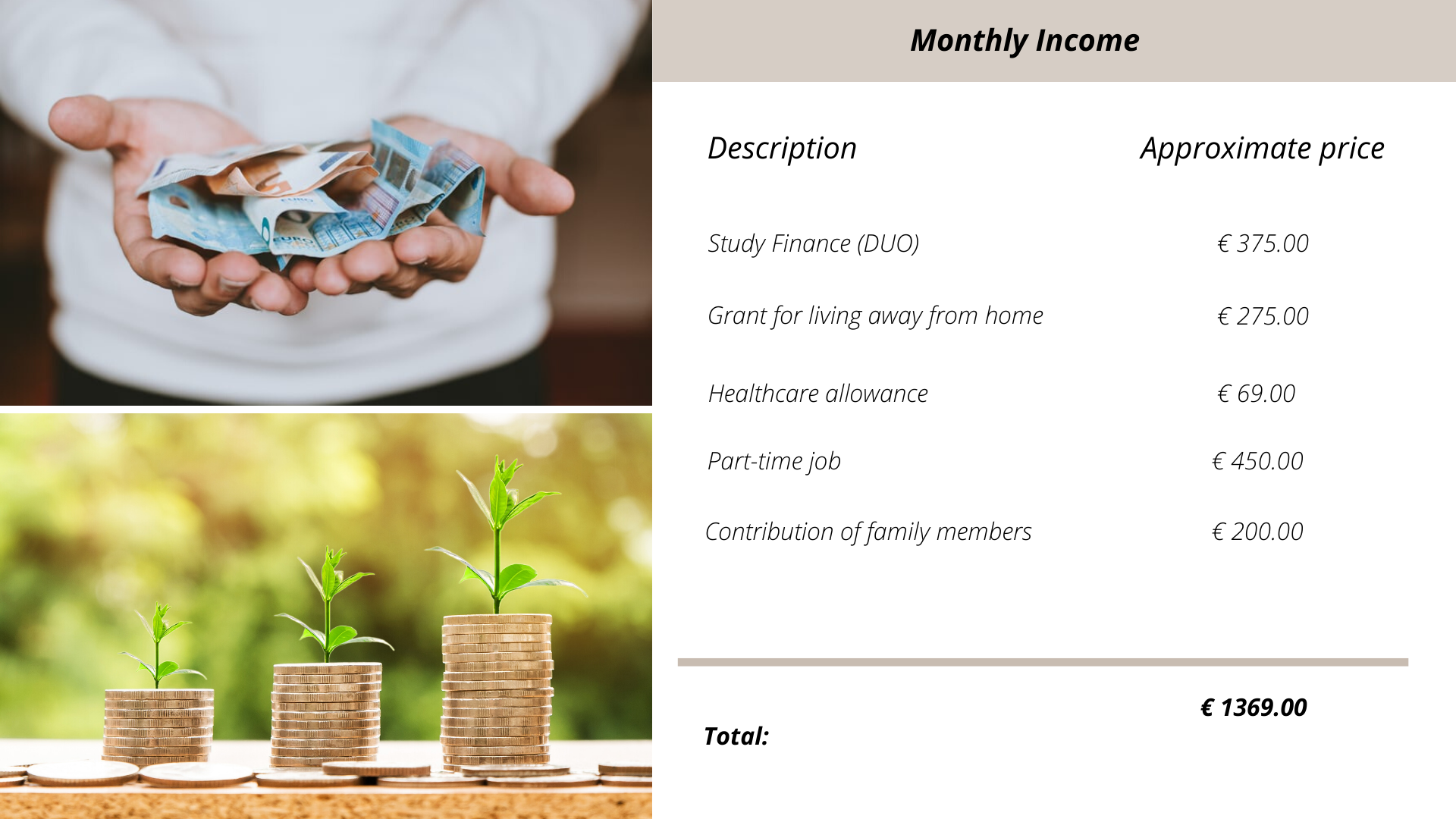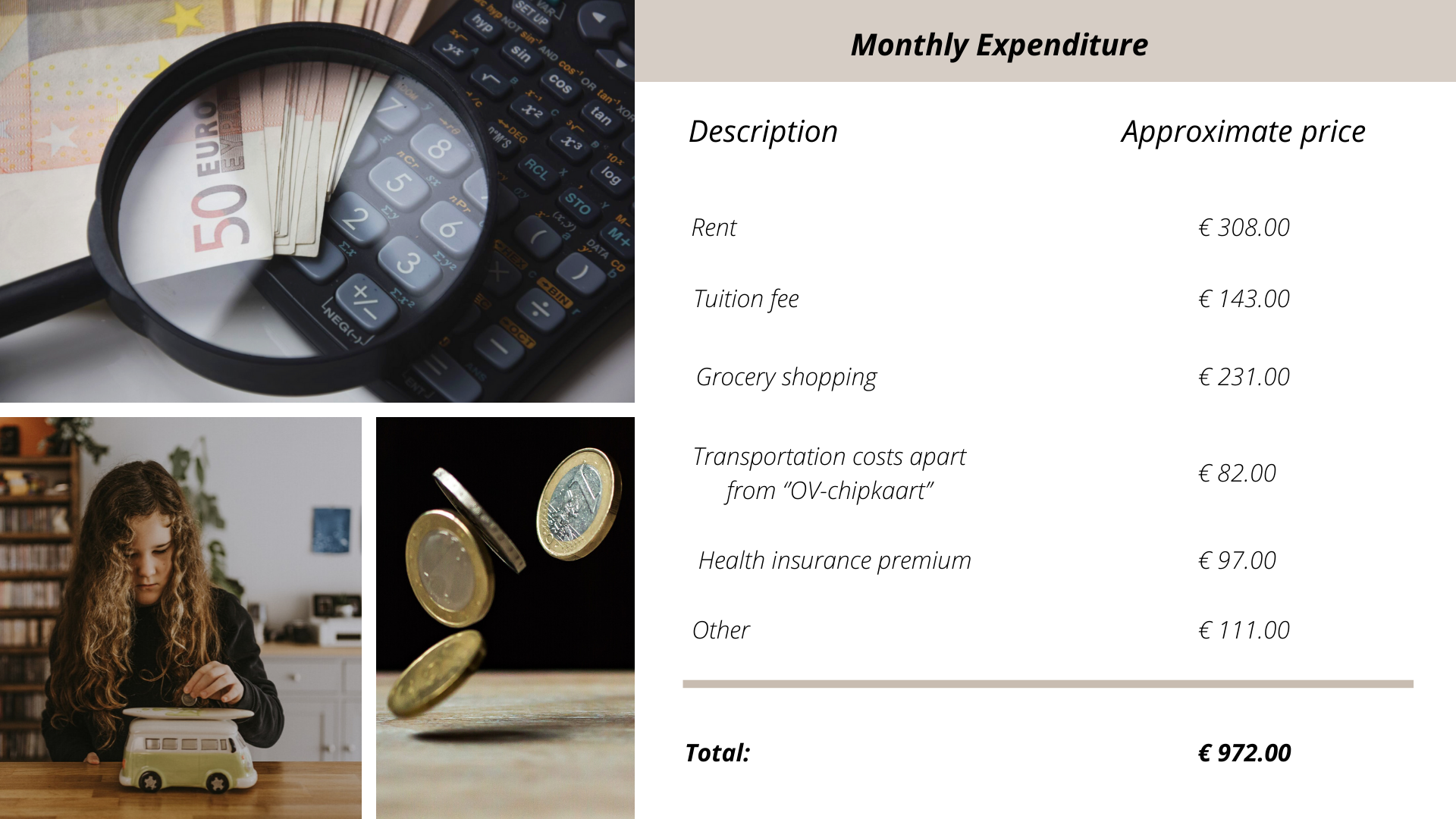How to Live in the Netherlands on a Student Budget
January 02, 2020
Nur Hafiza Abu Bakar
New rules in higher education make the student's budget an inevitable topic of conversation in the Netherlands. Student finance, which you will get when your study program lasts for more than a year, can have some consequences for students.
Let's discover the income and expenses of an average Dutch/Foreign student so that you will get acquainted with the inevitable costs and what you could possibly cut back on.
Monthly Income
The primary source of student income is generated by extra earnings, followed by a loan and the resident grant. Various students are financially sustained by their family members. However, healthcare allowance could be considered as an income, but it is used to cover a part of the costs of health insurance.

Monthly Expenditure
The primary source of expenditure is your rent. The costs for a room or house depend on the city or village that you, as a student, live in. The grant for living away from home will be spent almost entirely on renting the accommodation, followed by grocery shopping and the payment of tuition fees.

Budget tips
Whether you have money left over or are anxiously waiting for student finance, being aware of what you will spend for the upcoming month, should definitely be taken into account. Keeping your finances organized, considerable debt can deftly be avoided, and money can be saved.
Below you will find budget tips to immediately save money:
- ''Skip the middle man''. Make use of markets near your accommodation. Frequently, farmers sell their harvest at the market, which has a more reasonable price in comparison to supermarkets.
- ''Go Dutch''. Split the costs of the food with your friends or roommates.
- Compare insurances, such as a car or healthcare insurance, since it can save you a lot of money.
- Often, student discounts can be found online where you can find exclusive deals.
- Rent the desired products that you expect to use temporarily. It will save money, and at the same time, it is environmentally friendly.
Budget plan
If you want a thorough overview of your income and expenses, a budget plan could be created. A budget plan consists of two parts, which are as follows:
- A monthly budget, in which you determine your cash flows.
- A weekly budget, in which you keep track of your weekly income and expenses.
Keeping an eye on your cash flows will provide you with a more thorough overview of all your income and expenses. On the internet, free or low-cost budget spreadsheets and templates are available for students who want to take notice of their weekly or monthly expenses.
Kickstart your education in Malaysia
We'll help you find and apply for your dream university
You might be interested in...
- Why Master's Degree Students are Encouraged to Continue Their PhD?
- Top Countries With the Most International Students
- Student Tips: How To Spend Your Days In Penang
- How to Survive in the University of Malaya: A quick guide on making it out alive
- This unexpected country dominates in 2018 rankings for best Student-to-Staff ratio
- Good news: International Students can now apply for their Malaysian visa electronically
- Multimedia University (MMU) - An Entrepreneurial University with Industry-ready Programmes
- How to get your Malaysia Student Visa approved quickly?
- Countries Perceived As The Easiest To Obtain A Student Visa
- Career Paths Of A Hospitality Management Student





 +60173309581
+60173309581